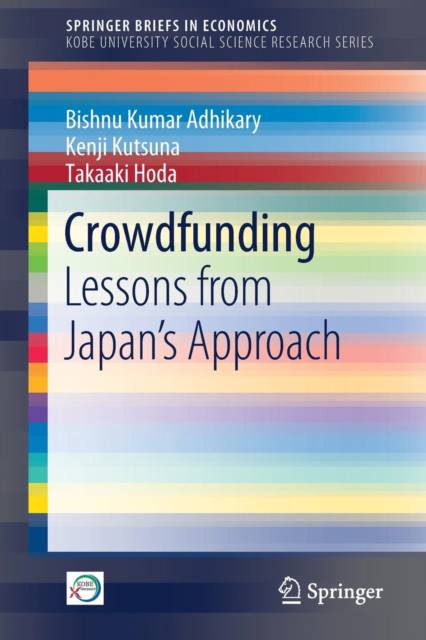
- Retrait gratuit dans votre magasin Club
- 7.000.000 titres dans notre catalogue
- Payer en toute sécurité
- Toujours un magasin près de chez vous
- Retrait gratuit dans votre magasin Club
- 7.000.0000 titres dans notre catalogue
- Payer en toute sécurité
- Toujours un magasin près de chez vous
Description
This book discusses the concepts, types, models, and patterns of crowdfunding to provide a comprehensive portrait of this newly developed market-based financial tool. In addition, it examines a number of economic theories to help readers understand the proliferation of crowdfunding, reviews empirical works to find gaps in the literature, and outlines future research directions. A unique feature of this book is that it discusses Japan's crowdfunding approach, which is somewhat different from that of the Western countries, by highlighting a specific crowdfunding platform (Music Securities) and a crowdfund-backed firm (SABAR restaurant). Further, it explores the suitability of Japan's crowdfunding approach for addressing the financial needs of SMEs in developing countries, using Bangladesh as a representative case. Finally, the book identifies some lessons learned from crowd funding so as to advance research into this phenomenon, and to make it efficient and sustainable. As such, the book will benefit novices, academics, researchers, and policymakers interested in crowdfunding technology.
Spécifications
Parties prenantes
- Auteur(s) :
- Editeur:
Contenu
- Nombre de pages :
- 99
- Langue:
- Anglais
- Collection :
Caractéristiques
- EAN:
- 9789811315213
- Date de parution :
- 26-07-18
- Format:
- Livre broché
- Format numérique:
- Trade paperback (VS)
- Dimensions :
- 156 mm x 234 mm
- Poids :
- 172 g

Les avis
Nous publions uniquement les avis qui respectent les conditions requises. Consultez nos conditions pour les avis.






